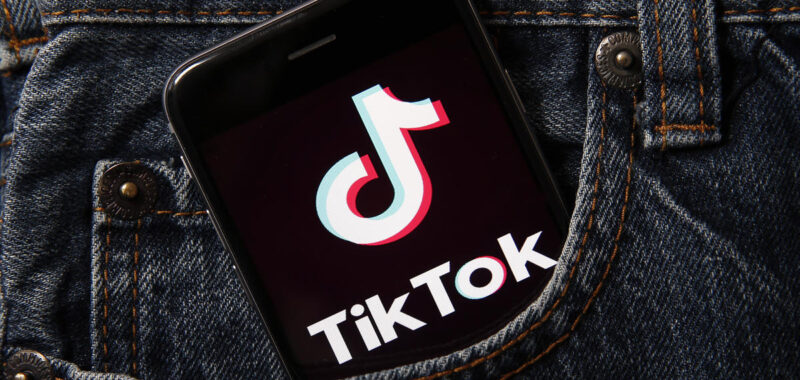For Delyanne Barros a lot depends on the Senate’s upcoming vote on a bill that would ban TikTok in the U.S. unless it splits from Beijing-based parent company ByteDance.
The 41-year-old personal finance and money coach, who built a financial consulting company from the ground up, said a ban of the popular social media app TikTok could potentially wipe out as much as 30% of her business overnight.
Barros, who goes by @delyannethemoneycoach on TikTok, isn’t sure if she’d even be running her own business today were it not for the Chinese-owned app, which faces a potential ban if the proposed legislation, passed by the House on Wednesday, is enacted into law.
“I started my business in January 2020, and went full in on TikTok,” Barros told CBS MoneyWatch. “That’s where a lot of my content started going viral and it catapulted my business. It was an integral part of how I grew it in the beginning,”
TikTok doesn’t pay Barros directly, rather it’s how 20%-30% of her clients find her, and ultimately purchase an investing course she offers. The remainder of her clients seek out her services through other social media apps on which she has a presence, internet searches and by word of mouth. She also makes money through brand-sponsored posts on social media platforms including TikTok.
“A ban would result in me losing a major part of my business. I would definitely feel a hit,” she said.
Barros is not alone. Many of TikTok’s 170 million monthly active U.S. users rely on the app to generate secondary and even primary income streams. Seven million small businesses are also among them, and use the platform to drive growth, according to a joint report from Oxford Economics and TikTok released Wednesday.
Thirty-nine percent of small businesses say that access to TikTok is critical to their businesses’ existence, while another 39% say TikTok has allowed them to generate supplemental or principal incomes through their activity on the app, according to the report. Sixty-nine percent of small businesses say TikTok has led to increased sales in the past year.
Tori Dunlap, founder of a money and career platform, Her First $100K, said TikTok “was absolutely fundamental” to the growth of her business, securing a book deal and launching a podcast. Her viral videos have helped her amass 2.4 million followers on TikTok over four years. Her popularity on the platform has also led to lucrative brand partnerships and new clients of her coaching services.
“TikTok is the top of the funnel in terms of our customer journey. It’s how people discover us,” Dunlap told CBS MoneyWatch.
“Incredibly unfair”
Sophie Beren, founder and CEO of The Conversationalist, an educational platform that empowers young people to have conversations and create community, said that for creators who rely wholly or in part on TikTok for income, a ban would be “devastating.”
“They are struggling with a potential ban because we are living in a world where it’s impossible to have one traditional path for income. The traditional path for young people doesn’t guarantee economic success or stability like it used to,” Beren told CBS MoneyWatch.
She added that the possibility of taking away an income stream from the creator community feels “incredibly unfair.”
Tiffany Yu, founder of Diversability, a for-profit advocacy group and community provider for people with disabilities, is also afraid of what a potential ban would mean for her business and the people it serves and employs.
Yu’s advocacy group makes money selling memberships and through corporate sponsorships. She credits TikTok with growing her reach large enough to secure major brand partnerships, including deals with Hilton and Dove. All told, the deals acquired through TikTok account for more than 50% of Diversability’s revenue.
For Yu, a ban could mean going back to her bootstrapping roots, when she made ends meet by renting part of her apartment and selling used furniture, in the early days of running Diversability.
“I would like to not have to go back there, but if that’s what we had to, then we would do it,” she said.
Safer to diversify, than rely on a single platform
Barros, the money coach, said that while a TikTok ban could hurt her business, it wouldn’t destroy it. That’s because she has never allowed her business to depend entirely on a single platform, whose fate she never had any control over.
“Like any business, you need to diversify, and I use Instagram and Threads and all the other platforms, too,” she said.
But TikTok offers a unique advantage for people like herself, Barros said, because its algorithm is more effective at feeding audiences tailored content that they’re likely to engage with, she believes.
Still, she’s prepared for a potential ban on TikTok and any other social media platform for that matter.
I use other platforms but I have also been building an email list that I own,” she said. “I feel secure that my business will continue to grow and thrive. If TikTok were to be shut down I would inevitable feel the impact, but it’s not something that would wipe out my business.”

